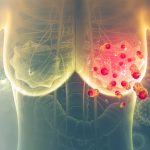WARNING: COVID-19 jab triggers false breast cancer diagnosis, according to doctors
 (NaturalHealth365) While it’s being brushed off in mainstream media as a “surprising new side effect,” false-positive breast cancer diagnoses are becoming more and more common following the COVID shot.
(NaturalHealth365) While it’s being brushed off in mainstream media as a “surprising new side effect,” false-positive breast cancer diagnoses are becoming more and more common following the COVID shot.
A group of doctors from Utah is now issuing new guidelines for mammogram screening among women recently jabbed with either the Pfizer or Moderna injection.
Post-jab side effects presenting like breast cancer, leading to an uptick in false positives following mammograms
Like many injections, the COVID-19 shot is associated with inflammation and swelling in the lymph nodes – small, bean-like structures that contain white blood cells and filter lymphatic fluid as part of the body’s immune system. You can find lymph nodes throughout the body, especially in the neck, armpit, chest, abdomen, and groin.
Typically, swollen lymph nodes, called lymphadenopathy, aren’t harmful nor “bad,” but rather a sign that your immune system is actively working to fight off an infection (or triggered in response to an injection, for that matter).
Now, a group of Intermountain Healthcare doctors from Utah is urging women to postpone their routine mammogram because of the disruptive way jab-induced lymph node swelling in and around the breast tissue is affecting the accuracy of this screening tool.
Dr. Brett Parkinson, medical director of Intermountain Healthcare’s Breast Care Center, recently said to the media: “Whenever we see [swollen lymph nodes] on a normal screening mammogram, we call those patients back because it can either mean metastatic breast cancer which travels to the lymph nodes, or lymphoma or leukemia.”
Discover a Simple and Effective Way to Remove Toxins: This is Jonathan's #1 choice for at-home detoxification. Special offer ends Feb. 16.
Already, a number of vaxxed women have reportedly received false-positive breast cancer diagnoses because significantly swollen lymph nodes were observed on their mammograms.
Dr. Parkinson adds that he and his team are surprised by just how many of these lymph nodes are becoming affected. “With the Moderna vaccine it’s about 11% [of lymph nodes near breast tissue] after the first dose,” he says, “and 16% after the second dose. We believe it’s comparable for the Pfizer vaccine, as well.”
In order to avoid even more false positives, Intermountain Healthcare is now advising women to get their routine mammograms before the first dose of their jab or wait a full month after getting their second dose – either Moderna or Pfizer.
No word yet on how a third booster shot will affect these recommendations.
False-positive breast cancer diagnoses are not without consequence, experts say
One can imagine the emotional and physical toll that a false positive breast cancer diagnosis can have on a woman and her family. But the negative psychological impact isn’t the only thing that women should be aware of.
According to a 2015 article published in Health Affairs, the average cost associated with a false-positive mammogram is nearly $900, along with unnecessary doctor visits and invasive procedures.
It’s important to understand that breast cancer screening tools, like mammograms, are not shown to prevent breast cancer itself. But because mammograms may help doctors detect breast cancer in a patient, it has been promoted as a “helpful” tool to reduce the rate of breast cancer deaths. Of course, it should be noted that the conventional “wisdom” of using a mammogram to “prevent breast cancer” has been questioned – as an effective strategy – by many integrative healthcare providers.
Let’s not forget, the radiation from this kind of testing procedure can potentially increase the risk of breast cancer – especially if done multiple times over the years.
Currently, around 43,600 women die of breast cancer every year in the United States. So, clearly, we need to focus on better strategies to protect women, like the value of eating an organic diet and health-promoting activities like, exercise.
Sources for this article include:
Newstarget.com
Newstarget.com
NBCmiami.com
FOX13now.com
ITNonline.com
Healthaffairs.org
Cancer.gov
Cancer.org
Komen.org
Cancer.org
Clevelandclinic.org



